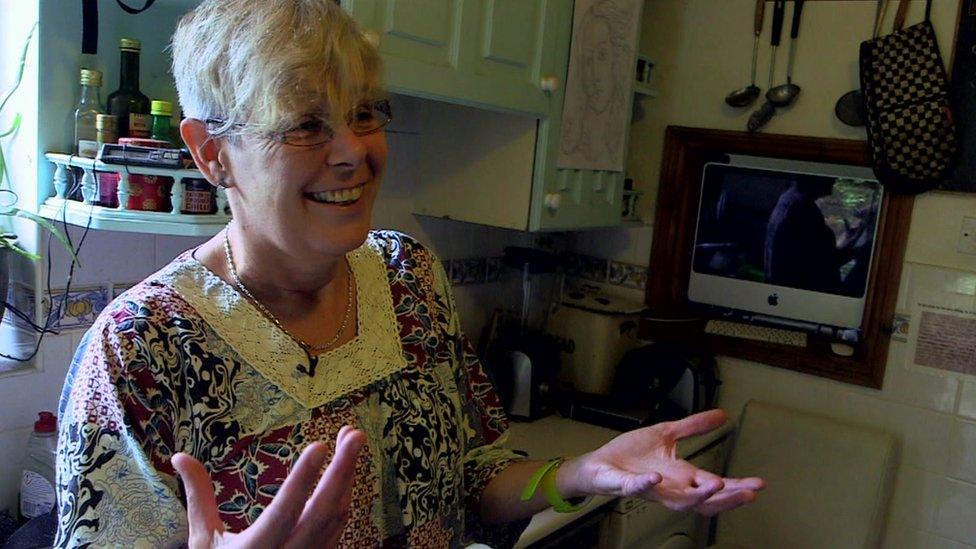ADHD: Excluded pupils 'should be screened automatically'
- Published
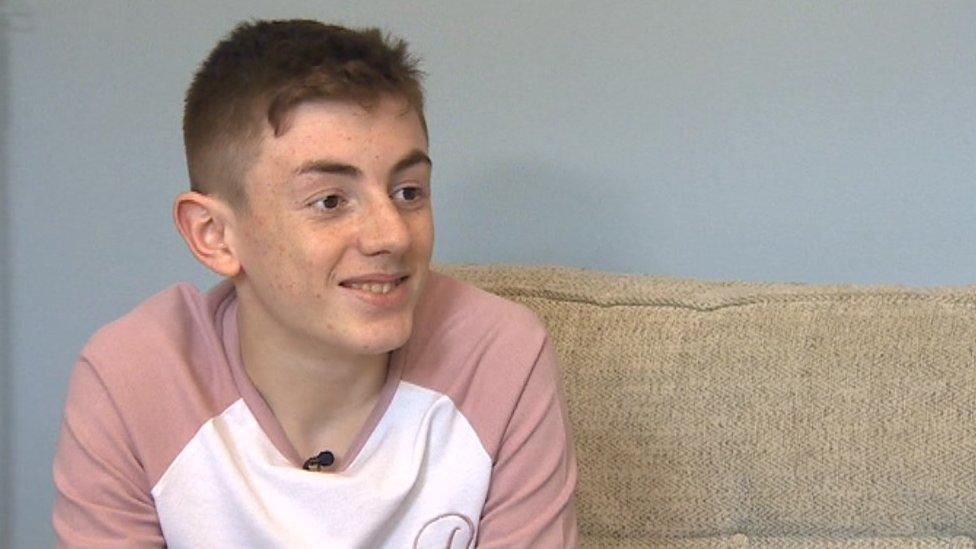
Dylan was diagnosed with ADHD aged six and has recently been accepted to study performing arts at college
Children who are repeatedly excluded from school should be automatically screened for learning difficulties including ADHD, it has been claimed.
Prof Amanda Kirby made the call after a charity's figures revealed 30% of prison inmates have ADHD - compared with 3-5% of the general population.
Dylan, 15, who has ADHD, said his experience of school was "punishment after punishment after punishment".
The Welsh Government said it had "no plans" to routinely screen children.
Dylan was diagnosed with ADHD when he was six years old.
"School in general has been an absolute nightmare for him," his mother, Zoe Piper, told BBC Wales Today.
"People think I'm joking when I say that it wouldn't surprise me if he ended up in prison."
She said her son has been physically bullied at school in the past, and claimed schools were not equipped to support children with additional learning needs.
"I dread it every single day. I hate sending him to school knowing I am sending him to be told off and to be ridiculed in front of his class," she added.
"The way he is at the moment, he might look to go down the wrong path just to get that self-assurance, that self-esteem built up."
Zoe Piper said she was often "embarrassed" by her son's behaviour
Dylan explained that ADHD makes it difficult to keep himself "calm" and "contained", and that his "outbursts" in school affect his life in and out of class.
"I have been told I am disruptive, I won't stop fidgeting, which I can't help - that's my way of calming down," he said.
He claimed he has missed a significant number of lessons as a result of his school's punishment-first approach.
Figures from ADHD Action, external show the percentage of people with ADHD in the UK's prisons is 10 times higher than that of the general population.
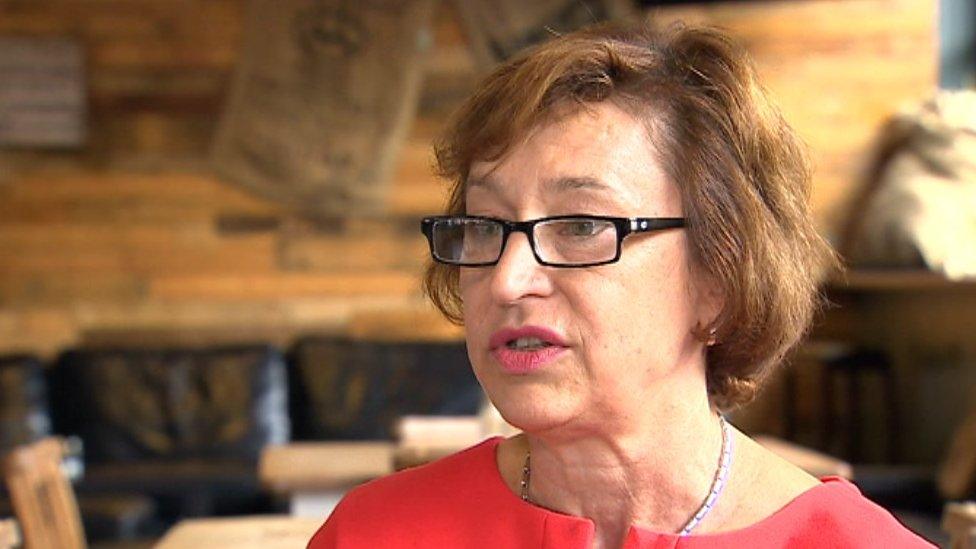
Prof Amanda Kirby claimed "automatic" screening of repeatedly excluded schoolchildren could help pick up learning difficulties earlier
Prisoners are either "unsurprised" or "glad" once they receive a diagnosis, said David Seeley, consultant psychiatrist at Cardiff Prison.
"Some inmates are glad to have some sort of explanation of the difficulties they have had," Mr Seeley added.
Prof Kirby, an expert in developmental disorders in education at the University of South Wales, called for more targeted screening based on behaviour at school.
"I believe that every single young person who has been excluded more than once should be screened automatically for learning difficulties," she said.
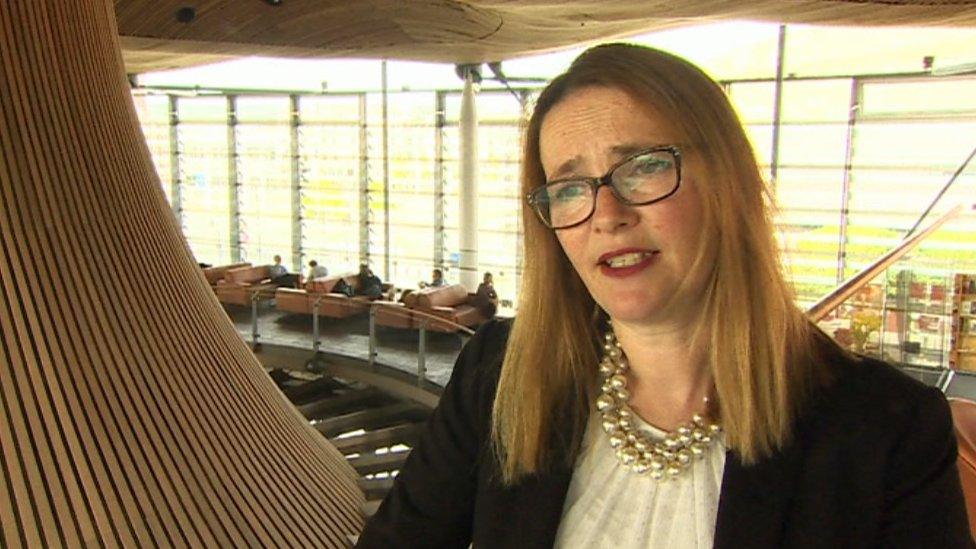
Education Secretary Kirsty Williams said the Welsh Government had introduced legislation, external in November, and accompanied it with £21m of funding to help its implementation.
"If you are sitting there thinking 'my child hasn't got these needs, why should I be bothered?', actually society as a whole pays a price in the end," she said.
Pushed on whether she would support Prof Kirby's idea, Ms Williams said there were "no plans" to "routinely test children".
She suggested that a better way to support children with learning difficulties was to provide better training to teachers in order to reduce exclusions.

What is ADHD?
Symptoms include inattentiveness, hyperactivity, impulsiveness, anxiety and sleep problems
ADHD was first recognised as a valid condition in the UK in 2000, but not officially recognised as an adult condition until 2008
In 1990 only 40 children in the UK were on medical treatment, which means many adults have not been treated or managed properly
At least a third of these are likely to have significant ongoing problems as adults
An estimated 30% of adult prisoners have ADHD
ADHD affects 5% of children and 3% of adults (1.5 million) in the UK, making it the most common behavioural disorder in the country
About a third of children are diagnosed, while for adults it is about 7-8%
Source: ADHD Action

- Published26 July 2018
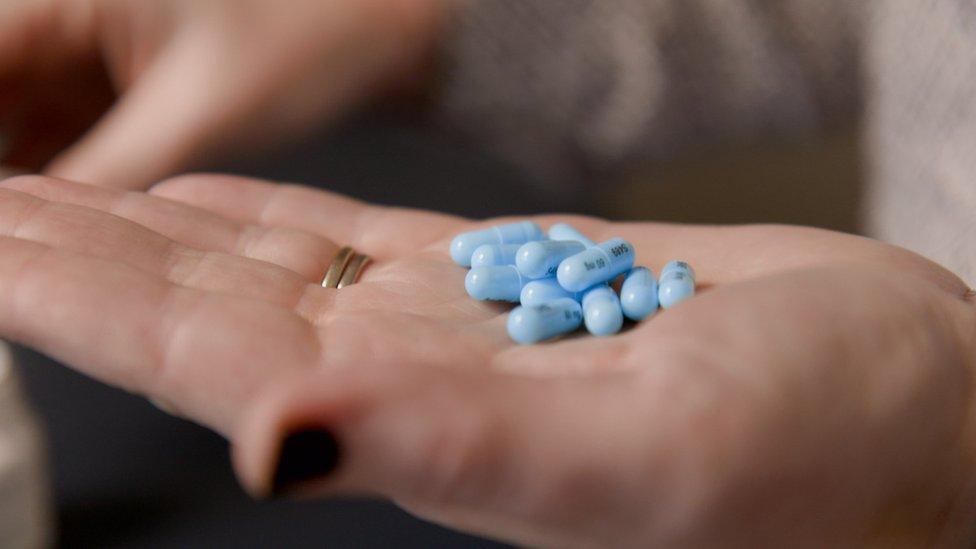
- Published8 May 2018
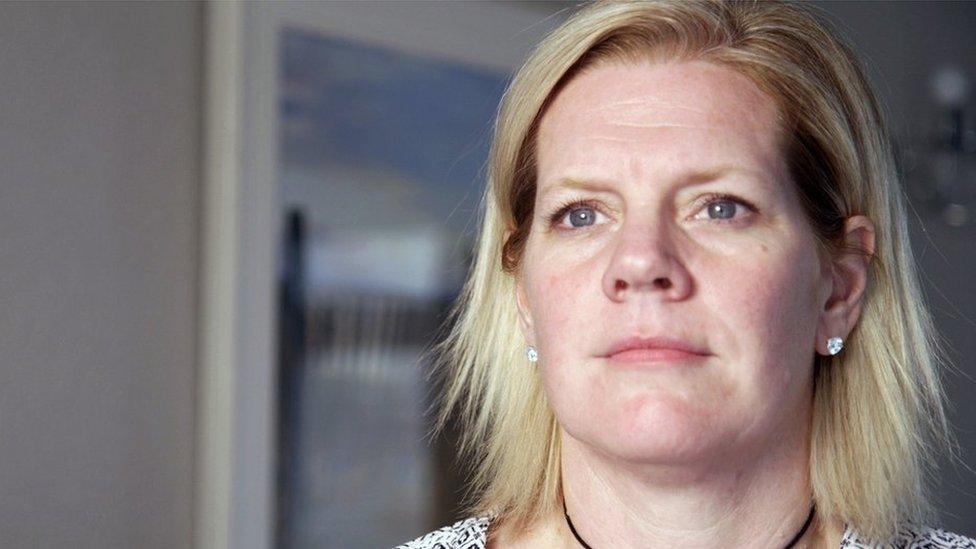
- Published26 March 2018
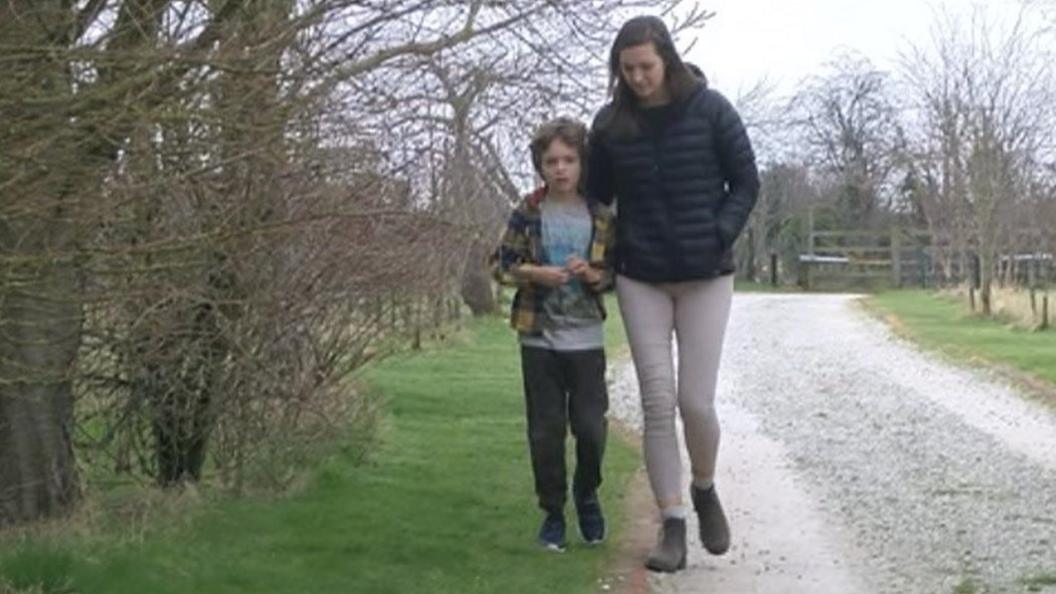
- Published3 November 2017
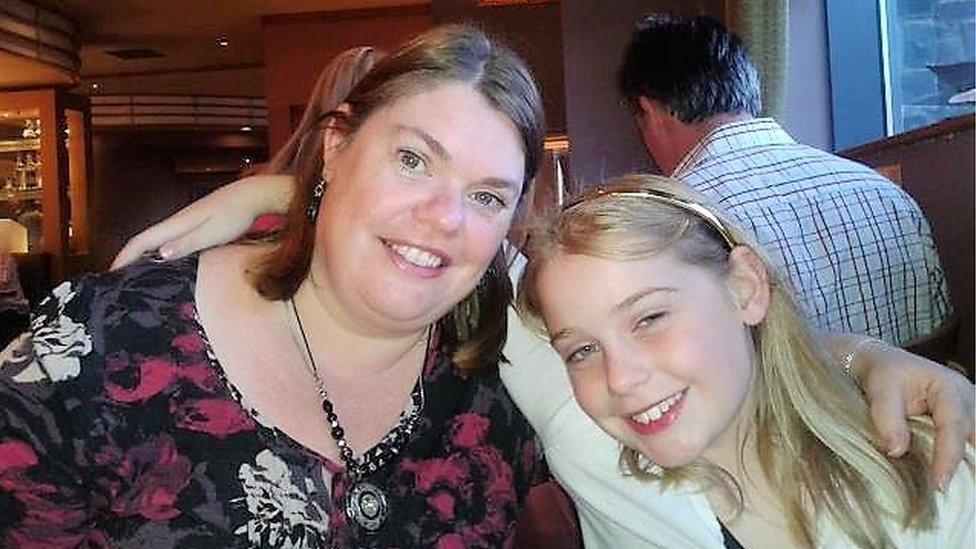
- Published17 August 2015
